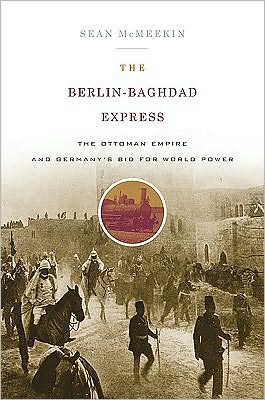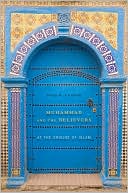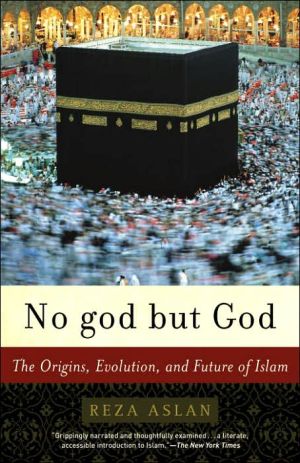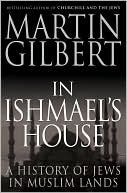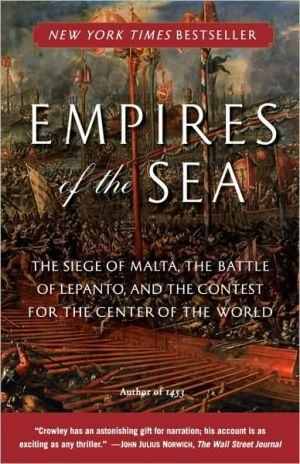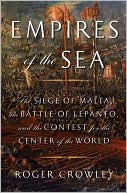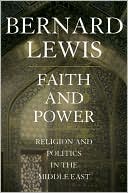The Berlin-Baghdad Express: The Ottoman Empire and Germany's Bid for World Power, 1898 to 1918
The modern Middle East was forged in the crucible of the First World War, but few know the full story of how war actually came to the region. As Sean McMeekin reveals in this startling reinterpretation of the war, it was neither the British nor the French but rather a small clique of Germans and Turks who thrust the Islamic world into the conflict for their own political, economic, and military ends.\ The Berlin-Baghdad Express tells the fascinating story of how Germany exploited Ottoman...
Search in google:
The modern Middle East was forged in the crucible of the First World War, but few know the full story of how war actually came to the region. As Sean McMeekin reveals in this startling reinterpretation of the war, it was neither the British nor the French but rather a small clique of Germans and Turks who thrust the Islamic world into the conflict for their own political, economic, and military ends.The Berlin-Baghdad Express tells the fascinating story of how Germany exploited Ottoman pan-Islamism in order to destroy the British Empire, then the largest Islamic power in the world. Meanwhile the Young Turks harnessed themselves to German military might to avenge Turkey’s hereditary enemy, Russia. Told from the perspective of the key decision-makers on the Turco-German side, many of the most consequential events of World War I—Turkey’s entry into the war, Gallipoli, the Armenian massacres, the Arab revolt, and the Russian Revolution—are illuminated as never before.Drawing on a wealth of new sources, McMeekin forces us to re-examine Western interference in the Middle East and its lamentable results. It is an epic tragicomedy of unintended consequences, as Turkish nationalists give Russia the war it desperately wants, jihad begets an Islamic insurrection in Mecca, German sabotage plots upend the Tsar delivering Turkey from Russia’s yoke, and German Zionism midwifes the Balfour Declaration. All along, the story is interwoven with the drama surrounding German efforts to complete the Berlin to Baghdad railway, the weapon designed to win the war and assure German hegemony over the Middle East. The Barnes & Noble Review This is one of the essential books about the Middle East's labyrinthine recent history, perhaps the most telling case of how a knowledge of history is necessary to an understanding of the present. And that fact makes one wish that McMeekin had written his book a decade or more earlier.
List of MapsList of AbbreviationsA Note on Names and TranslationsPrologue: The View from Haydarpasha 1I THE VISION1 The Kaiser, the Baron and the Dragoman 72 Berlin to Baghdad 323 Young Turks and Old Caliphs 54II THE PROPHET ARMED4 A Gift from Mars: German Holy War Fever 855 The War for the Porte 1006 The First Global Jihad: Death to Infidels Everywhere! (Unless they be Germans, Austrians, Hungarians, Americans or -possibly - Italians) 123III ADVENTURES IN GERMAN JIHAD7 Parting the Red Sea 1418 An Austrian in Arabia 1539 Showdown at the Suez Canal 16610 Gallipoli: From Disaster to Triumph 18011 The Blood of the Prophet 19112 The Shia Stratagem 20113 To the Gates of India 209IV BOOMERANG14 Trouble on the Baghdad Railway 23315 The Reluctant Mahdi 25916 Iranian Implosion 27517 Betrayal in Mecca 28818 The Holy War Devours its Children 30119 Consolation Prize? The Race for Baku 318Epilogue: The Strange Death of German Zionism and the Nazi-Muslim Connection 340Notes 367Bibliography 413Acknowledgements 427Index 431
\ Wall Street JournalIn addition to bringing to life a fascinating episode in early 20th-century history, The Berlin-Baghdad Express contains several timely lessons and cautionary tales. Purchased loyalty is worthless. Western countries may possess superior military force, but they are outwitted time and again by diplomacy as practiced by Muslim leaders. Lastly, there is no such thing as global Islamic solidarity—jihad is an expedient, not a belief system.\ — David Pryce-Jones\ \ \ \ \ \ New York PostGermany saw the ambitious Berlin-to-Baghdad railway as a powerful tool to win World War I. But the doomed project wasn't completed until 1940. The railway debacle provides a colorful backdrop for historian McMeekin's look at the Great War from the German-Turk perspective; as a cast of ruthless characters illustrate Germany's attempt to topple what was then the largest Middle East power: the British Empire.\ — Billy Heller\ \ \ \ popmatters.comThe Berlin Baghdad Express is a refreshing kind of military history that approaches World War I from a truly fresh angle. The Ottoman focus certainly makes this a singular and highly original book but, more significant is McMeekin's interest in the workings of empire during the war. As he demonstrates here, the imperial concerns of all of the European powers played a bigger part in the war than is often acknowledged.\ — Alan Ashton-Smith\ \ \ \ \ \ Huffington PostIn a fascinating, must-read for anyone interested—or more importantly, engaged—in Western policy-making in the Middle East, Sean McMeekin's new book, The Berlin-Baghdad Express: The Ottoman Empire and Germany's Bid for World Power, takes us on a tour of one of modernity's grand follies: the attempt by Imperial Germany to establish an "anti-Orientalist" empire in the Middle East through an alliance with the Ottoman Empire. The goal was to create a strategic, economic and military force that could challenge if not destroy the British Empire, then its main rival for global dominance...The parallels between Imperial Germany and Imperial America—both in overextending wars to enhance their position versus powerful rivals—are as informative as they are troubling. Americans would do well to consider how Germany came out of its first world war: bitter, battered and primed for fascism.\ — Mark Levine\ \ \ \ \ \ New York Review of BooksSean McMeekin's account possesses the large merit that it tells a story little known to Western readers, drawing extensively upon German sources. It depicts a splendid cast of characters heroic in their endeavors if absurd in their lack of accomplishments.\ — Max Hastings\ \ \ \ \ \ Foreign AffairsThis is the story of Germany's plans to bring the Ottomans into World War I and then to play the jihad card against the Allies, which held most of the Muslim world in colonial thrall. It is good, old-fashioned history as biography. Kaiser Wilhelm II, the mercurial archaeologist Max von Oppenheim, and "the Three Pashas," Cemal, Enver, and Talat, loom large. But many others—friends, foes, and would-be Muslim recruits to jihad—are also well delineated. In telling the story of the Central Powers' less-than-successful recruitment of locals, from Libya to Arabia to Afghanistan, McMeekin demonstrates the fragility of this jihadist dream. And his accounts of the victory over the Allies at Gallipoli and the failure to complete the Berlin-Baghdad rail line nail down the greater importance of military skill and geopolitical givens in determining outcomes.\ — L. Carl Brown\ \ \ \ \ \ The AtlanticSean McMeekin is a professional historian with a deft popular touch...[This is an] engrossing and enlightening narrative.\ — Christopher Hitchens\ \ \ \ \ \ The GuardianMcMeekin has written a powerful, overdue book that for many will open up a whole new side to the first world war, while forcing us to be less reticent in confronting indelicate matters, such as the origins of Nazi-Islamist links.\ — George Walden\ \ \ \ \ \ Choice[McMeekin] does a stellar job framing newer issues of both diplomatic and intellectual history that are important to Europeanists and Ottomanists alike. The subject matter is fresh, and the style is engaging—a worthwhile read.\ — J. K. Cox\ \ \ \ \ \ Barnes and Noble ReviewSean McMeekin shows how the ambitious plan to build a railroad from Central Europe to Mesopotamia was the key to some of the most crucial episodes in the First World War, including the Armenian genocide and the Arab Revolt.\ — Adam Kirsch\ \ \ \ \ \ Barnes & Noble ReviewAll the more brilliant is Sean McMeekin's telling of this complex tale in The Berlin-Baghdad Express. He recounts the convolutions and involutions of detail, the ambiguities and equivocalities of intention, the necessities and urgencies of dangerous international entanglements, with remarkable clarity. His ostensible subject is the building of a railway from Berlin to Baghdad in the years before and during the First World War, a railway conceived by Kaiser Wilhelm of Germany as an artery along which the lifeblood of a new and mighty German empire would flow. Instead, one of its immediate consequences was the copious shedding of the more ordinary sort of blood. As if the faltering line of that railway were a thread, McMeekin strings along it a tale of intrigue, callous calculation, human misery, skullduggery, cheating, revolution, murder and war. The result is not only wondrously fascinating in itself, but, alas for the mess that the world is in today, painfully educative. Because of this angle of approach McMeekin brings a fresh perspective to the history of the Eastern Question, the Young Turk revolution, and Britain's demolition of the Ottoman Empire...The story is so complex and so richly told by McMeekin that no summary can do it justice: it needs to be read, and readers will mutter and shake their heads with wonder at every page...This is one of the essential books about the Middle East's labyrinthine recent history, perhaps the most telling case of how a knowledge of history is necessary to an understanding of the present. And that fact makes one wish that McMeekin had written his book a decade or more earlier.\ — A. C. Grayling\ \ \ \ \ \ The IndependentA riveting account.\ — Brendan Simms\ \ \ \ \ \ Literary ReviewIn this excellent, well-researched, and fascinating book, Sean McMeekin has given us a welcome and stimulating perspective on a highly important but neglected aspect of the First World War... A tale of high adventure, ambition and political chicanery with a cast of colourful, brave and sometimes ruthless characters.\ — Lawrence James\ \ \ \ \ \ The ObserverAn exciting new book by a talented young historian, Sean McMeekin, who is one of the few to have penetrated the notoriously difficult Ottoman archives, despite the crucial importance of Turkey in the first world war.\ — Niall Ferguson\ \ \ \ \ \ The Sunday TimesA terrific book...McMeekin's learned story of death-defying secret agents, intrepid archeologists, and double-dealing sheikhs makes for wonderful entertainment.\ \ \ \ \ \ Wall Street JournalIn addition to bringing to life a fascinating episode in early 20th-century history, The Berlin-Baghdad Express contains several timely lessons and cautionary tales. Purchased loyalty is worthless. Western countries may possess superior military force, but they are outwitted time and again by diplomacy as practiced by Muslim leaders. Lastly, there is no such thing as global Islamic solidarity—jihad is an expedient, not a belief system.\ — David Pryce-Jones\ \ \ \ \ Choice[McMeekin] does a stellar job framing newer issues of both diplomatic and intellectual history that are important to Europeanists and Ottomanists alike. The subject matter is fresh, and the style is engaging--a worthwhile read.\ — J. K. Cox\ \ \ \ \ The IndependentA riveting account.\ — Brendan Simms\ \ \ \ \ The GuardianMcMeekin has written a powerful, overdue book that for many will open up a whole new side to the first world war, while forcing us to be less reticent in confronting indelicate matters, such as the origins of Nazi-Islamist links.\ — George Walden\ \ \ \ \ The ObserverAn exciting new book by a talented young historian, Sean McMeekin, who is one of the few to have penetrated the notoriously difficult Ottoman archives, despite the crucial importance of Turkey in the first world war.\ — Niall Ferguson\ \ \ \ \ Foreign AffairsThis is the story of Germany's plans to bring the Ottomans into World War I and then to play the jihad card against the Allies, which held most of the Muslim world in colonial thrall. It is good, old-fashioned history as biography. Kaiser Wilhelm II, the mercurial archaeologist Max von Oppenheim, and "the Three Pashas," Cemal, Enver, and Talat, loom large. But many others--friends, foes, and would-be Muslim recruits to jihad--are also well delineated. In telling the story of the Central Powers' less-than-successful recruitment of locals, from Libya to Arabia to Afghanistan, McMeekin demonstrates the fragility of this jihadist dream. And his accounts of the victory over the Allies at Gallipoli and the failure to complete the Berlin-Baghdad rail line nail down the greater importance of military skill and geopolitical givens in determining outcomes.\ — L. Carl Brown\ \ \ \ \ Literary ReviewIn this excellent, well-researched, and fascinating book, Sean McMeekin has given us a welcome and stimulating perspective on a highly important but neglected aspect of the First World War... A tale of high adventure, ambition and political chicanery with a cast of colourful, brave and sometimes ruthless characters.\ — Lawrence James\ \ \ \ \ New York PostGermany saw the ambitious Berlin-to-Baghdad railway as a powerful tool to win World War I. But the doomed project wasn't completed until 1940. The railway debacle provides a colorful backdrop for historian McMeekin's look at the Great War from the German-Turk perspective; as a cast of ruthless characters illustrate Germany's attempt to topple what was then the largest Middle East power: the British Empire.\ — Billy Heller\ \ \ \ \ The Sunday TimesA terrific book...McMeekin's learned story of death-defying secret agents, intrepid archeologists, and double-dealing sheikhs makes for wonderful entertainment.\ \ \ \ \ New York Review of BooksSean McMeekin's account possesses the large merit that it tells a story little known to Western readers, drawing extensively upon German sources. It depicts a splendid cast of characters heroic in their endeavors if absurd in their lack of accomplishments.\ — Max Hastings\ \ \ \ \ The AtlanticSean McMeekin is a professional historian with a deft popular touch...[This is an] engrossing and enlightening narrative.\ — Christopher Hitchens\ \ \ \ \ Huffington PostIn a fascinating, must-read for anyone interested--or more importantly, engaged--in Western policy-making in the Middle East, Sean McMeekin's new book, The Berlin-Baghdad Express: The Ottoman Empire and Germany's Bid for World Power, takes us on a tour of one of modernity's grand follies: the attempt by Imperial Germany to establish an "anti-Orientalist" empire in the Middle East through an alliance with the Ottoman Empire. The goal was to create a strategic, economic and military force that could challenge if not destroy the British Empire, then its main rival for global dominance...The parallels between Imperial Germany and Imperial America--both in overextending wars to enhance their position versus powerful rivals--are as informative as they are troubling. Americans would do well to consider how Germany came out of its first world war: bitter, battered and primed for fascism.\ — Mark Levine\ \ \ \ \ popmatters.comThe Berlin Baghdad Express is a refreshing kind of military history that approaches World War I from a truly fresh angle. The Ottoman focus certainly makes this a singular and highly original book but, more significant is McMeekin's interest in the workings of empire during the war. As he demonstrates here, the imperial concerns of all of the European powers played a bigger part in the war than is often acknowledged.\ — Alan Ashton-Smith\ \ \ \ \ The Barnes & Noble ReviewFrom A. C. Grayling's "THE THINKING READ" column on The Barnes & Noble Review\ \ Here are two facts that might jolt your perception of current tensions in the Middle East. The first is that the empire which, at its height, had more Muslim subjects than any other empire ever -- counting as subjects over one in three of the world's Muslims -- was the British Empire.\ The second fact is that at the end of the First World War, Britain had more than a million soldiers in the Middle East, and in the years immediately following it cut up the map of the region into the shape it bears today, creating entirely new countries in the process and putting its nominees and clients into power in them.\ A third fact lends significance to the first two: in 1911 Winston Churchill was First Lord of the Admiralty, in charge of Britain's mighty Royal Navy, the vast police-force of the empire. Years of strikes by well-organised militant miners in the coal-fields of Britain had made Churchill worried that the far-flung fleets and therefore the empire itself could be held to ransom by -- name of malediction! -- socialists. He therefore ordered the navy to switch from coal-fired to oil-fired engines. That obliged Britain to help itself to parts of the world with oil wells: Persia was the first port of call, soon to be followed by British-created Iraq.\ And how about a fourth fact: that imperial Britain never allowed any hostile power to threaten the approaches to its priceless milch-cow of India. That explained the struggles with Russia in Central Asia and Afghanistan in the nineteenth century; in the early twentieth century Germany's friendship with the Ottoman Empire made Britain wary of any threat to its sea route through Suez and the overland route through Persia and Afghanistan. The British therefore took Egypt and Persia under its control, and when war began it poured troops into the region and fought very hard -- and successfully -- to destroy the Ottoman empire and dispose of its remains as it wished.\ This tale has been well told a number of times, though because of the intricate complexity of the alliances, double-crosses and diplomatic and military shenanigans that infected the build-up to war and its conduct in the region, it has generated much controversy among historians. Who said what to whom, who did what when and why, who is to blame, what might have happened -- the usual jungle of opinion finds lavishly fertile soil here.\ All the more brilliant, therefore, is Sean McMeekin's telling of this complex tale in The Berlin-Baghdad Express. He recounts the convolutions and involutions of detail, the ambiguities and equivocalities of intention, the necessities and urgencies of dangerous international entanglements, with remarkable clarity. His ostensible subject is the building of a railway from Berlin to Baghdad in the years before and during the First World War, a railway conceived by Kaiser Wilhelm of Germany as an artery along which the lifeblood of a new and mighty German empire would flow. Instead, one of its immediate consequences was the copious shedding of the more ordinary sort of blood.\ As if the faltering line of that railway were a thread, McMeekin strings along it a tale of intrigue, callous calculation, human misery, skullduggery, cheating, revolution, murder and war. The result is not only wondrously fascinating in itself, but, alas for the mess that the world is in today, painfully educative.\ Because of this angle of approach McMeekin brings a fresh perspective to the history of the Eastern Question, the Young Turk revolution, and Britain's demolition of the Ottoman Empire -- one of four empires to implode in that struggle: German, Austro-Hungarian, Russian and Ottoman, with a fifth (the British) beginning to bleed to death. He has an argument to put, and he does it convincingly, not least on the question of whether the German aim of promoting an Islam-wide jihad against Britain was a hasty 1914 improvisation or a more circumstantial plan resting on the already decades-long relationship between Berlin and Constantinople, which had begun in the enthusiasm for all things Islamic and Ottoman acquired by Kaiser Wilhelm ("Hajji Wilhelm") on his state visits to the Sublime Porte and its territories.\ It happens, though, that in the summer of 1914, as a result of the Young Turk revolution of several years before, German-Ottoman relations were at a low ebb, and the Wilhelmstrasse -- Germany's foreign ministry -- had sent a not especially competent ambassador to Constantinople. In line with its own longstanding policy of playing the Great Powers off against each other, the Porte was keeping everyone guessing about its intentions in the coming conflict, and in fact was secretly exploring the possibility of alliances with all parties, not just Berlin. But when the crunch came the Young Turk government sided with Germany, in the process extracting hugely advantageous terms for itself from Berlin, some of it by trickery, as McMeekin recounts, and more of it by very astute use of the state of emergency then prevailing.\ The importance of the story is enormous. As McMeekin says, "Few decisions in world history have been as fraught with consequences as Turkey's entry into the First World War. From the closing of the Straits [the Bosphorus] for years to Russian commerce -- a major cause of the economic upheaval which led to the Russian Revolution -- to the creation of the modern Middle East out of the wreckage of the defeated Ottoman Empire, the Turks' decision to fight in 1914 lies at the root of the most intractable geopolitical problems of the twentieth century, many of which are still with us today."\ The story is so complex and so richly told by McMeekin that no summary can do it justice: it needs to be read, and readers will mutter and shake their heads with wonder at every page. But a few salient points press for mention.\ Under the influence of the irrepressible Middle Eastern scholar and enthusiast Baron Max von Oppenheim, the Germans devised the stratagem of having Jihad, Holy War, pronounced in fatwas (in Turkish, fatvehs) against all infidels except Germans, Austrians, Americans, and any other ally of the Porte or any significant neutral. Some thought this message was likely to prove confusing to fanatics bent on murdering anyone who did not look Turkish or Arab, and the thought proved prescient. Its main aim was to get the huge number of Muslim subjects of the British Empire to rise against their masters, thus saving Germany and its allies the trouble of defeating Britain themselves.\ In the words of the American ambassador to the Porte, Henry Morgenthau, "the Kaiser's desire" was "to let loose 300,000,000 Mohammedans in a gigantic St Bartholomew's Day massacre of Christians." One of the pamphlets distributed by the Germans blamed what it called "the state of degradation to which the World of Islam as arrived" on the European Christians who in India, Egypt and the Sudan had subjugated hundreds of millions of Muslims. And the worst of these "enemies of God," said the pamphlet, were "the infidel English." The pamphlet told Muslims everywhere "that from today Holy War has become a sacred duty and that the blood of the infidels in the Islamic lands may be shed with impunity (except those who enjoy the protection of the Muslim power and those to whom it has given security and those who confederate with it)." And in a phrase that remains chillingly resonant today, the pamphlet concluded, "The killing of the infidels who rule over the Islamic lands has become a sacred duty, whether it be secretly or openly; as the great Koran declares in its word: 'Take them and kill them wherever you come across them'."\ As it turned out, the call for universal jihad was very patchily received. Some atrocities occurred, but hopes for a rising of Muslims against their British masters in India and Egypt did not materialize. Indeed when an abortive German-Turkish attack was made on the Suez Canal in 1915 the British troops repulsing it included Muslim soldiers from India.\ Of interest also is the battle waged by the German-Ottoman alliance against the British for the loyalty of the Arabs. It was almost exclusively a battle fought with gold -- and won by the British -- because the Arab tribes, mainly devoted to inter-tribal feuding and looting, were an independent and largely irreligious group (except for the ferocious Saud clan, who were, as they remain, fundamentalist Wahhabis of an uncompromising kind; but no less keen on gold for all that) who did not take to European notions of military endeavour, and responded only to bribes of gold and weapons -- which nevertheless never guaranteed their loyalty or aid.\ An example was the chieftain Mumtas Bey, "who went so far as to promise the Ottoman army command that 'he and his Bedouins would either die or raise the Ottoman flag on the Citadel in Cairo.' Mumtas was then given enormous sums in gold, whereupon he disappeared into the desert." He had in fact been scared off by a reconnaissance party of British troops; one of the German agents in Damascus wrote that this "squalid fiasco" was further proof that the Arabs were "cowardly and insubordinate."\ The Arabs accordingly earned the opprobrium of one of the more thoughtful Central Powers agents sent to induce them to fight for the Ottoman cause, the Austrian scholar Alois Musil. Besides decrying their incessant feuding, Musil objected to their taking twelve-year old girls as wives and concubines. The German commander of the Ottoman troops in Damascus, Friederich Kress von Kressenstein, agreed with him on this, and further noted with distaste how the Bedouins "regularly bought and sold women as chattels, with fathers often selling 'pristine young daughters' for proper riding camels or a mature date tree. Widows or divorcees, by contrast, would usually only fetch a pack animal in barter."\ Students of the era will know that T. E. Lawrence, doing with some panache and showmanship on the British side what Musil and Kress were attempting on the German-Ottoman side, cultivated the Hashemite Prince Feisal of the Hejaz as leader of the largely-cosmetic "Arab revolt" that British gold purchased, eventually making him King of the newly-invented Iraq (a Sunni put in place over a Shia people: good thinking.) McMeekin reports Feisal's earlier dealings with the Germans, and quotes him saying to Max von Oppenheim in Constantinople, "I thank God that the interests of Islam are entirely identical with those of Germany…It is true that there is a difference in religion between Muslim countries and Germany. But in material interests relative to this world, differences over religion should never stand in the way of these reciprocal interests." As this shows, almost everyone betrayed almost everyone else in that dirty war over the rotting Ottoman carcass.\ Another complicating factor in this very tangled tale is Zionism. Germany encouraged the Zionists in the hope of promoting an uprising in the Pale against Russia, which meant that that it was prepared to make sympathetic noises about Jewish settlement in Palestine. But because this was inconsistent with their pro-Ottoman policy and their desire to recruit the Arab tribes for war against British Egypt, the Wilhelmstrasse dragged its feet over a public announcement to that effect -- and were pre-empted by the Balfour Declaration. But this latter was also the outcome of a calculation that the British came to regret, another twist in the snarling tale McMeekin tells so well.\ There is much more; from it one more thing to mention is that there can now be no place to hide for Turkish deniers of the Armenian massacres of 1915 -- or indeed for deniers of earlier Armenian massacres by the Ottomans, of which there were a number in the preceding decades. But this one, over which Turkey gets so hot under the collar, is exhaustively discussed by McMeekin, who in explanation (not excuse) of what happened anaylses the precarious military and supply situation for Turkey in eastern Anatolia in the light of an Armenian uprising. The events were appalling, even for a generally appalling war.\ This is one of the essential books about the Middle East's labyrinthine recent history, perhaps the most telling case of how a knowledge of history is necessary to an understanding of the present. And that fact makes one wish that McMeekin had written his book a decade or more earlier.\ \ \
